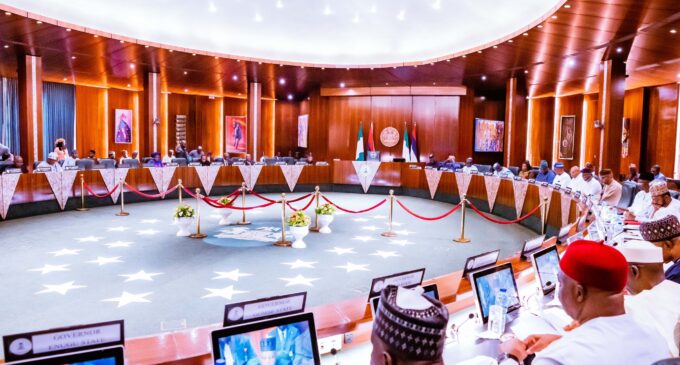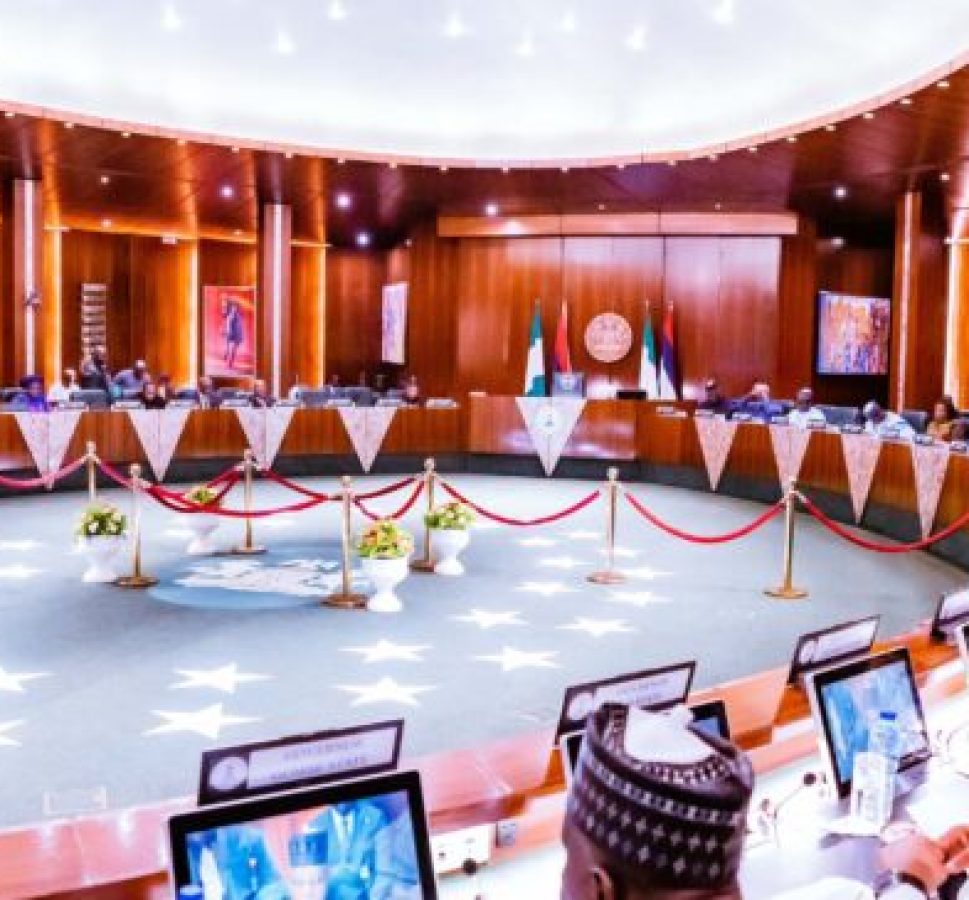
The National Economic Council, on Thursday, in Abuja, proposed that State Governments implement cash transfer programmes using state-generated social registers, to soften the harsh economic realities since the discontinuance of petrol subsidy on May 29.
This is different from the National Social Register, which, as of 2023, has captured over 61 million vulnerable Nigerians eligible for various government social programmes.
The implementation, NEC also proposed, would be based on the individual capacity and priority of various states.
Governors of Anambra, Prof. Charles Soludo, Ogun, Dapo Abiodun; Bauchi, Bala Mohammed and Acting CBN Governor, Folashodun Shonubi, revealed this to State House Correspondents after Thursday’s National Economic Council meeting held Chaired by Vice President Kashim Shettima at the Aso Rock Villa, Abuja.
The NSR is a repository of information about potential beneficiaries for multiple social assistance programmes with a common population of interest but not necessarily the same eligibility approach.
In building the NSR of poor and vulnerable households in the country, the National Social Safety-Nets Coordinating Office utilises four targeting approaches: Geographic, Community Ranking, Community Based Targeting and Proxy Mean Testing.
But addressing journalists, Abiodun said states-generated register “is aimed at enhancing the integrity and reliability of the NSR and ensuring that resources go to the intended beneficiaries.
He explained, “We also proposed accordingly that each state should begin to plan towards implementing a cash transfer programme that will be based on their social register of the states because it is the states that are better positioned to do that enumeration to ensure the integrity of the social register.”
The NEC also proposed the implementation of a cash award policy for all public servants.
The six-month cash award policy, Abiodun said, would allow subnational entities to pay their public servants a prescribed amount of cash monthly.Related News
“It was prescribed that it should be implemented for six months in the first instance. And you’ll be wondering why six months.
“The idea is that as much as we’re also particular about ameliorating the pains of our people immediately, a lot of sustainable measures are being put in place and it’s our hope that within now and the next six months, those sustainable measures would have begun to be visible. And then we can begin to taper down on these cash awards.
“These would be funds that will be placed in the hands of civil servants that will be tax exempt,” he explained.
On the amount to be doled out under the cash transfer programme, the Anambra State Governor, Soludo, said there would be no uniform figure as it would depend on the capacity of respective states.
He said state governments with outstanding salaries and allowances to pay must prioritise clearing the backlog instead of implementing cash transfers.
Soludo explained, “There is quite some fiscal surplus that will be coming to the states, local governments, and federal government.
“And we’ve suggested that it will be nice that you can implement cash transfers, subject to your financial capacity. Some might be able to do one; some might be able to do 10; some might be able to do 20, as the case may be. It depends on their capacity.
“There may be states that are not even able to do that now. For example, if you have a state where salary arrears workers have been owed for three years or four years, the priority now is to start paying down some of the salary arrears or where pensioners have been owed their pension and gratuity for several years.”
The council also stressed the need for all tiers of government to be responsive to the people’s sufferings and address the rising cost of governance.
They also stressed the importance of balancing investment and consumption, as well as making sustainable commitments.






